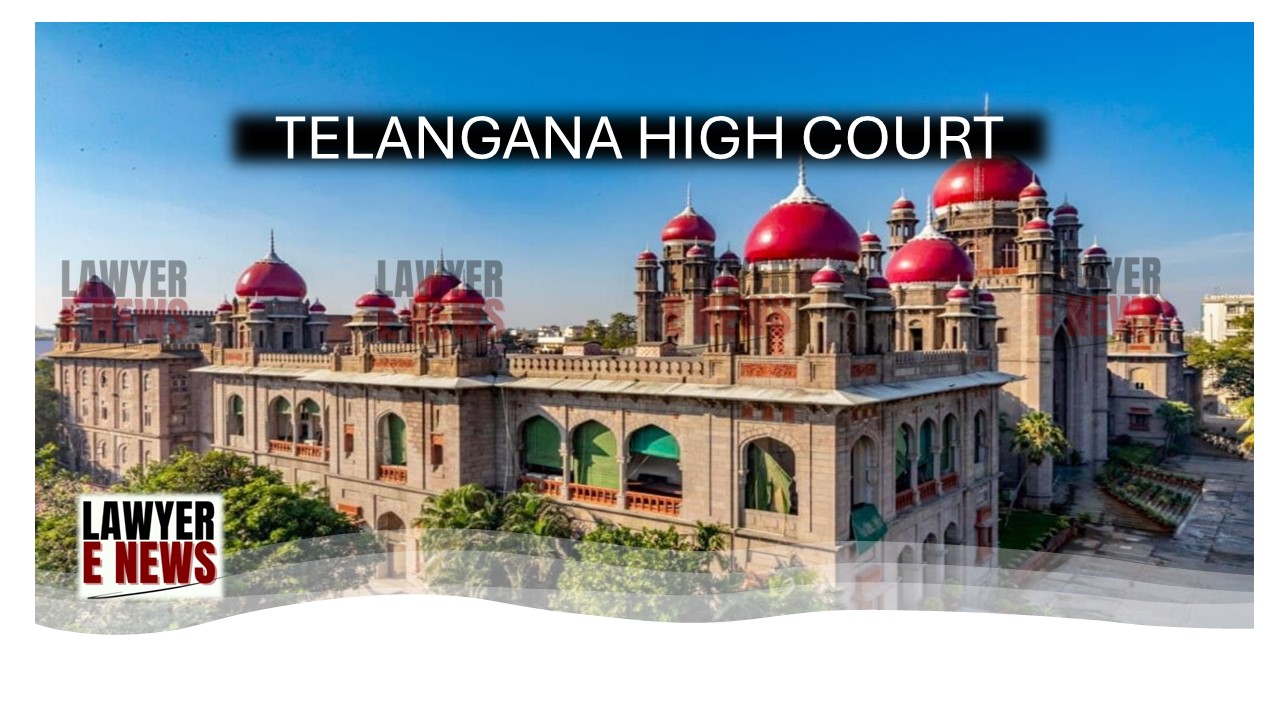-
by sayum
17 February 2026 5:39 AM



When Property Is Under Judicial Scrutiny, Courts Cannot Grant Interim Custody Until a Full Trial Determines Its Legal Ownership - In a crucial ruling Andhra Pradesh High Court dismissed petitions filed by Gali Janardhan Reddy and his family, seeking the release of seized gold ornaments and matured bonds allegedly linked to illegal mining proceeds. The Court upheld the Special CBI Court’s orders, ruling that "when property is attached as case evidence in a criminal trial, courts cannot allow its release before adjudicating its ownership through a full-fledged trial."
Rejecting Reddy’s plea for interim custody of the assets, the Court observed, "The question of whether the seized gold and bonds were lawfully acquired or are linked to the proceeds of crime can only be determined after the trial concludes. Judicial prudence does not permit premature release of assets under investigation."
"Illegal Mining Allegations and the Seizure of Wealth—Does the Property Belong to Reddy or the State?"
The case arose from an extensive CBI investigation into illegal mining activities allegedly involving Reddy and his company, Brahmani Industries. The agency alleged that Reddy and his associates had amassed ₹884.13 crores through illegal extraction and export of iron ore. During a raid at Reddy’s Bellary residence on September 5, 2011, the CBI seized 105 gold ornaments weighing 53.79 kg and cash amounting to ₹2.94 crores, along with investment bonds purchased in the names of his children.
Reddy and his family members approached the Principal Special Judge for CBI Cases, Hyderabad, seeking the return of these assets, arguing that they were personal property unrelated to the alleged illegal mining case. They contended that "the gold ornaments had been disclosed to the Income Tax Department and were required for Reddy’s daughter’s wedding." The trial court, however, rejected the plea, holding that "the assets formed part of the case property and could not be released until the trial was complete."
"Mere Declaration of Assets to Tax Authorities Does Not Prove Their Legality—Trial Court’s Rejection of Release Plea Upheld"
The High Court refused to interfere with the trial court’s decision, ruling that "mere declaration of assets to the Income Tax Department does not establish their lawful acquisition, particularly when parallel investigations by the CBI and Enforcement Directorate claim they are linked to illegal activities." It noted that "the bonds in question were purchased when Reddy’s children were minors, raising serious concerns about whether the funds used for investment were proceeds of crime."
The Court rejected Reddy’s contention that his family had an immediate right to the assets, stating, "When multiple agencies, including the CBI and ED, have attached the property under allegations of financial crimes, courts cannot release the assets without a full adjudication on their legitimacy."
"Seized Property Must Remain Under Judicial Custody Until Final Adjudication—Parallel Investigations by CBI and ED Reinforce the Need for Retention"
The Court took note of the provisional attachment order issued by the Enforcement Directorate on December 4, 2012, which linked Reddy’s assets to an ongoing money laundering investigation. It emphasized that "when the ED claims that these assets are proceeds of crime and the CBI maintains that they were acquired through illegal mining, any order for release would interfere with ongoing trial proceedings and the adjudication process before higher authorities."
It further observed that "since the Supreme Court is already considering a related case on the attachment of Reddy’s assets, lower courts must exercise caution and refrain from passing orders that may preempt a decision by the Apex Court."
"Gold Needed for Daughter’s Wedding Is Not a Valid Ground for Release—Judicial Process Takes Precedence Over Personal Circumstances"
Reddy argued that the seized gold ornaments were needed for his daughter’s marriage and should be released for family use. The High Court categorically dismissed this argument, pointing out that "during the CBI raid, 3,590 grams of gold jewelry and ₹4 lakhs in cash were returned to Reddy’s wife for family use. This allocation was sufficient, and the request for further release lacks legal merit."
The Court ruled that "personal necessities cannot override the requirements of a criminal trial. The judicial process must take precedence over individual claims, especially when the assets in question are under scrutiny for their alleged links to financial crimes."
"Premature Release of Assets Is Legally Untenable—Petitions Rightly Dismissed"
Rejecting all three petitions, the Court reaffirmed the principle that "assets alleged to be linked to proceeds of crime must remain under judicial custody until the trial reaches its logical conclusion." It ruled that "the accused can seek the release of the seized property only after the trial is complete and not before, as provided under Section 452 of the Criminal Procedure Code."
The Court concluded, "No legal right has been established by the petitioners to reclaim the property before the trial is concluded. The request for interim custody is premature and cannot be entertained."
"Judicial Custody of Seized Assets Ensures Integrity of the Criminal Trial—Court Prioritizes Legal Due Process Over Individual Claims"
This ruling reaffirms the principle that "seized assets linked to an ongoing criminal investigation must remain under judicial custody until their legal ownership is determined through due process." The Andhra Pradesh High Court has made it clear that "courts cannot allow the release of assets merely on the plea of personal necessity when they are part of a pending criminal trial."
Dismissing the petitions, the Court ensured that "law enforcement agencies retain control over assets suspected to be linked to financial crimes until a final judicial determination is made."
Date of Decision: 06 March 2025
